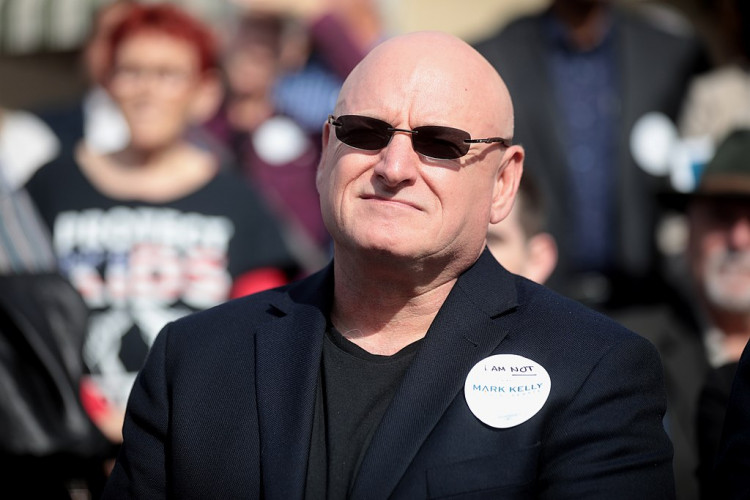Veteran astronaut Scott Kelly is returning his Russian spaceflight medal presented to him by the former President of Russia Dmitry Medvedev. Kelly's decision arrives amid the ongoing invasion of Ukraine.
The former NASA astronaut has been an outspoken opponent of the invasion, repeatedly voicing his disapproval with the aggression on Twitter in Russian. (All astronauts who visit the International Space Station must be able to communicate in English and Russian, and Kelly has visited the orbiting lab three times.)
Kelly has directed his rage at Roscosmos, the Russian federal space agency, and its chief, Dmitry Rogozin, who has responded with insults of his own and has eventually blocked Kelly on Twitter.
On two of his flights to the space station, the astronaut flew aboard the Russian Soyuz spacecraft, and from March 2015 to March 2016, he completed a yearlong mission aboard the orbiting lab with cosmonaut Mikhail Kornienko.
Kelly earned a Russian spaceflight medal for his achievements, but he no longer wants it.
"Mr. Medvedev, I am returning to you the Russian medal 'For Merit in Space Exploration,' which you presented to me," Kelly tweeted on Wednesday (in Russian; translation provided by Google).
"Please give it to a Russian mother whose son died in this unjust war. I will mail the medal to the Russian embassy in Washington. Good luck."
Kelly was referring to Dmitry Medvedev, the current deputy chairman of Russia's security council and former president of the country from 2008 to 2012 and prime minister from 2012 to 2020. Kelly's tweet came in response to one sent by Medvedev on International Women's Day, Mar. 8.
Following Russia's invasion of Ukraine on Feb. 24, international political tensions are at an all-time high.
The U.S. and what is now Russia began as competitors in space, but as time passed, the two countries began to collaborate. In 1975, in the midst of the Cold War, the two countries collaborated on the Apollo-Soyuz Test Project, a nine-day trip in which an Apollo spacecraft carrying NASA astronauts docked with a Soyuz vehicle carrying Soviet cosmonauts in orbit during a test flight.
While this flight brought the two countries together, what followed saw the U.S. and Russia cooperate on a far greater scale, notably in reference to the ISS program and sharing rides to the station aboard the Russian Soyuz spacecraft.
The U.S. and Russia have since partnered in space, but Russia's current move raises concerns about the NASA-Roscosmos relationship.






